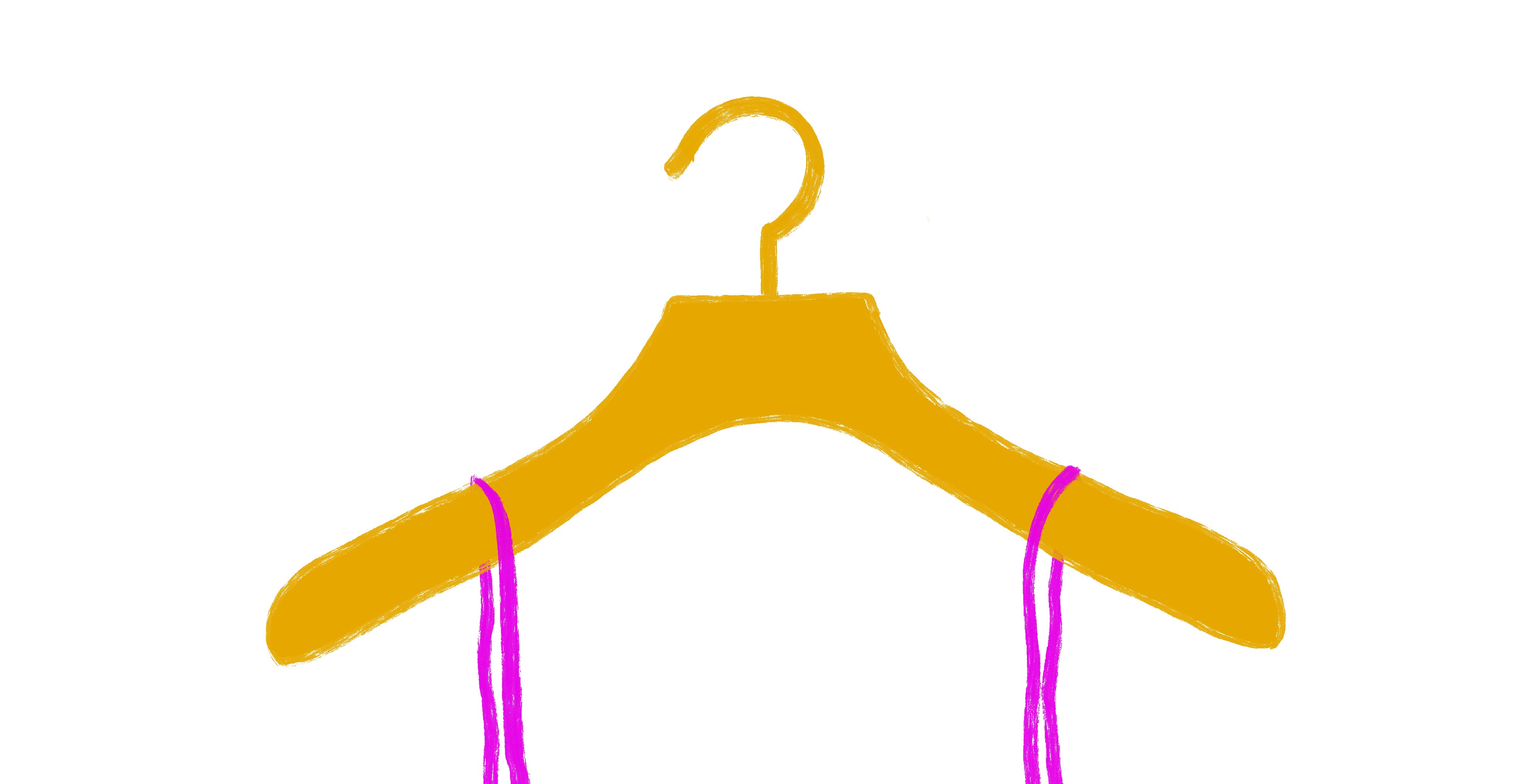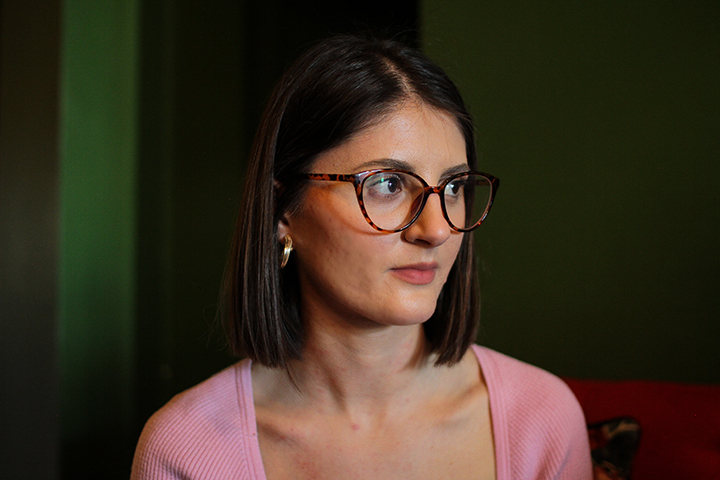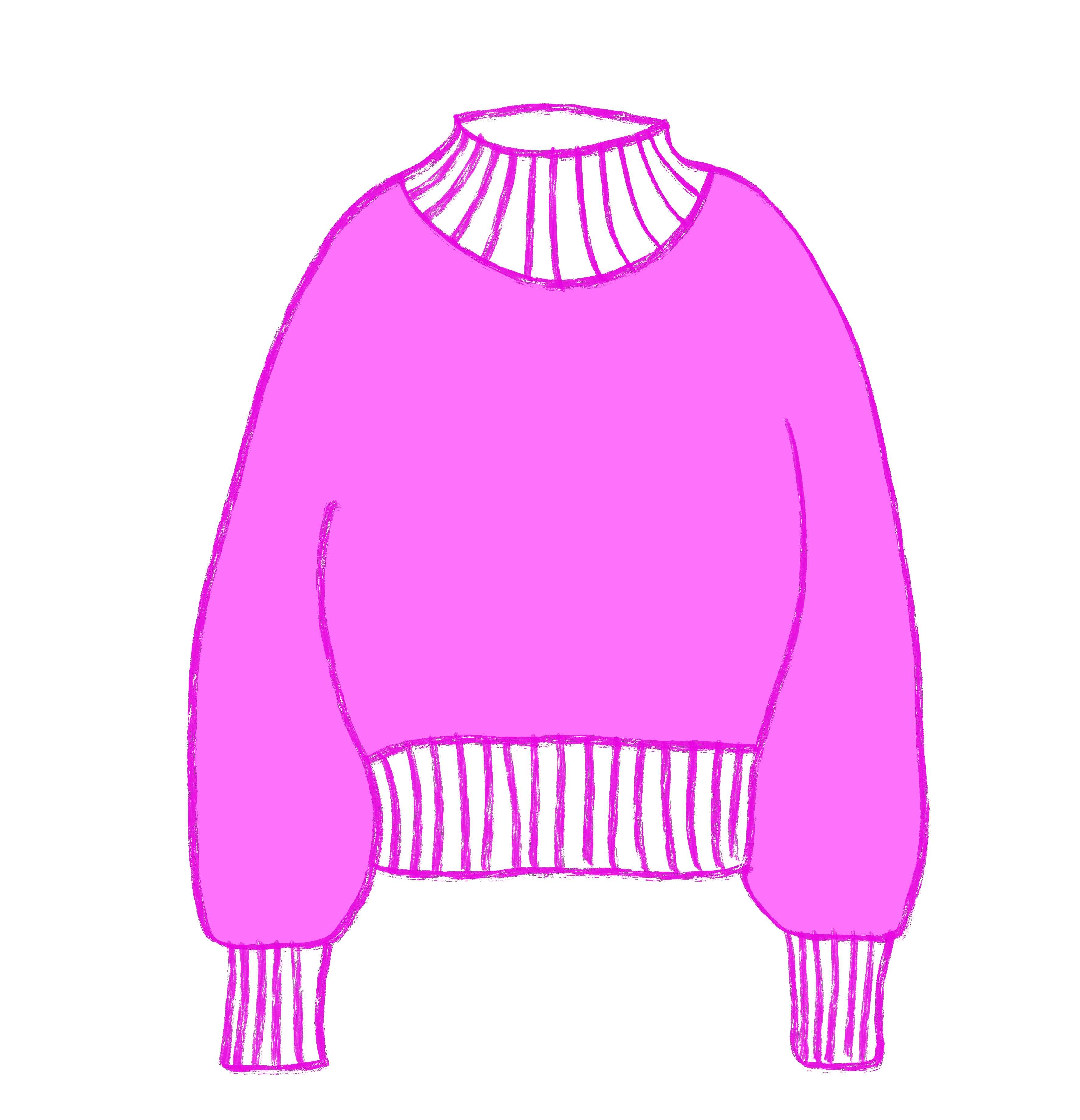A new generation of young women are reinventing Kosovo’s secondhand clothes shops for the 21st century, achieving financial stability and helping the environment in the process.
Like many of her peers, 26-year-old Agnesa Sejdiu from Prishtina found herself unemployed and often trapped at home in 2020.
A long term passion for picking out bargains from the city’s thrift shops had also left Sejdiu with an extensive wardrobe, and in August she began selling clothes that would no longer fit in her closet through a new Instagram account, ‘Agsvintage.’
Her new venture took off quicker than she expected, and soon Agnesa was scouring Prishtina’s second hand shops, handpicking clothes to sell through her online store, which she says is generating considerable profits.
Agnesa is not the only young woman in Kosovo to explore the possibilities created by social media and the proliferation of vintage clothes in the country. Sara Ajeti from Viti in southeastern Kosovo also found herself becoming an unwitting entrepreneur after opening the ‘sbs_thrift’ Instagram account with her sister when they were both teenagers.
Like Agnesa, the Ajeti sisters opened the online shop to move on some of the excess clothing from their overflowing collection, which was mainly sourced from thrift shops located across Kosovo. The online shop started out as a hobby, but soon became more profitable than they expected.
“In the first few months we managed to finance our whole summer ourselves,” Sara tells Prishtina Insight. “We saw an increase in sales really fast, and now we buy some stuff specifically to sell. We usually make around 2-3 euros per sale.”
As well as generating an income for themselves, the young women running the online thrift shops say they provide some incredible deals for their customers.
Sara points to two instances where she and her sister found items worth hundreds of euros at a thrift shop, purchased them for roughly 3-4 euros before selling them on for around 10.
Another online thrift shop owner, Majlinda, who launched the ‘thriftingnuts’ Instagram account a couple of years ago, tells Prishtina Insight that she once found a pair of Versace trousers with a retail price of around 1,200 euros on sale for just 10 euros.
These hidden treasures in Kosovo’s physical secondhand clothes shops are part of what makes the online stores’ business model workable. Majlinda, Sara and Agnesa all say that Kosovo’s thrift shops are often run without any fashion expertise, both in terms of pricing and presentation, which create a gap in the market for their businesses.
“Even if you have the time to go to a thrift shop, there are usually just piles of clothes – it requires a lot of patience to go through that,” Agnesa says. “On the other hand, at an online shop, you have hand picked pieces, and can see how the clothes fit through our models.”
Sara concurs that Kosovo’s physical thrift shops don’t make life easy for the customers. “They don’t classify clothes in any way,” she says. “If you don’t have a passion for fashion, you wouldn’t bother seeking out the good clothes.”
However, Majlinda believes that this lack of passion amongst the retailers helps create exciting opportunities to discover good quality items. “Business is just business for them – I haven’t seen true collectors who really love finding unique pieces of clothing and present them in a loving way,” she says. “But that means you can sometimes find quality and very unique clothes in secondhand shops.”
Fighting prejudices and fast fashion
While cheap prices are clearly a driving factor for the young business owners, all of them are quick to draw a distinction between the low-cost second hand clothes they sell and so-called ‘fast fashion.’
“Fast fashion offers you cheap clothes in the latest fashion, but definitely not good quality clothes,” Majlinda says.
Sara agrees, stating that second hand options provide not only better quality clothing but the chance for more unique outfits. “If you can’t afford something high-end and good quality then you should look around in thrift stores,” she says. “You can find things for cheap and you won’t look like everyone else.”
Fast fashion has also been criticised for its impact on the environment due to the large amounts of waste it produces. In response to this, a drive towards sustainable fashion, including reusing and recycling clothes has grown in profile across the world.
According to the online thrift shop owners Prishtina Insight spoke to, ecological factors were not among their customers’ top priorities. However, as Agnesa points out, the rise in popularity of purchasing second hand clothing will bring environmental benefits regardless of the buyers’ intentions.
“To be honest, I don’t believe that people looking to buy something second hand have eco-friendly reasons in mind, at least at first,” she says. “But I do believe that the younger generation in Kosovo is a lot more educated on this topic and I think that [buying and selling second hand clothes] is indirectly helping a much bigger and important cause.”
Despite the rise in popularity of buying second hand clothes, not to mention the economic and ecological benefits, Majlinda believes that there is still a certain amount of snobbery towards thrift shops. “I don’t think the growing trend has made the stigma disappear,” she says. “But the anonymity of online shopping definitely made things easier.”
Agnesa admits that even she was a little embarrassed about selling second hand clothes, but eventually learned to embrace her passion, which she now sees reflected in her young customer base.
“I believe the mentality has changed, young people do not feel ashamed about shopping for second hand clothes,” she says. “I realised that the stigma had faded after I got lots of messages from young girls asking me where I buy my clothes.”
Agnesa hopes that her growing business will lead to her moving from being an online retailer to having her own physical shop, a dream she shares with both Majlinda and the Ajeti sisters.
“I want my business to be registered,” Agnesa says. “Because I can’t really call myself a businesswoman when the business does not formally exist.”
Imagining her ideal thrift shop, Agnesa states that she would curate the clothes on sale and work hard on marketing, including through a website. “I don’t think the prices would even really go up either,” she says.










